“INSIDE THE FINNISH MAN LIVES THIS DEMON, THE PERKELE, WHO IS JUST WAITING TO GET OUT” – VALGRINDER (FÖRGJORD)
Immortalising in timeless Black Metal malevolence the victims of some of the most appalling atrocities in their nation’s cruel history, Förgjord’s music explores the pitch-black darkness that lurks at the heart of the Finnish psyche – a time bomb ready to explode at any moment with even the slightest provocation. Guitarist and songwriter Valgrinder granted me an insight into the darkest, destructive side of Finnish culture, where the senseless loss of life can almost invariably be attributed to depression, intoxication or – worse still – an uncontrollable and lethal combination of both.
 Listening to Förgjord, it’s impossible not to be transfixed by the inherent sense of melancholy and despair that pervades your music. This genuine darkness cannot be imitated or faked, so I’m wondering where does it come from? How are you able to successfully conjure and channel so much forlorn desolation into each record? Is it a consequence of the personalities or characters of the individual members of the band or does it run much deeper – a reflection perhaps of a depressed, detached and indifferent Finnish psyche, the pitch-black darkness that lurks in the hearts, souls and minds of your people?
Listening to Förgjord, it’s impossible not to be transfixed by the inherent sense of melancholy and despair that pervades your music. This genuine darkness cannot be imitated or faked, so I’m wondering where does it come from? How are you able to successfully conjure and channel so much forlorn desolation into each record? Is it a consequence of the personalities or characters of the individual members of the band or does it run much deeper – a reflection perhaps of a depressed, detached and indifferent Finnish psyche, the pitch-black darkness that lurks in the hearts, souls and minds of your people?
“Let me start from a little bit deeper. We Finns are quite grey people. We carry much pride in our blood and that’s the main reason why we are so arrogant, depressed, angry, jealous, guilty and hostile. We are always worried, especially when there are other people around. It comes from our fathers who got it from their fathers who got it from their fathers and so on. Maybe this isolated, cruel, cold and dark land was so hard to live in that one had to survive to be able to live here. Sometimes that proudness is a good thing, for example if you check what it did in the Second World War. It gave us a ‘Talvisodan ihme’ (‘The Miracle of the Winter War’) that made us unite and everyone – be it a civilian or soldier – gave his everything. It was like they were too stubborn to die and would die before giving up. You can hear stories about men who performed miracles just so that this land wouldn’t be occupied or won by some outsider. They couldn’t handle the thought that someone could defeat them. They didn’t always have the best resources or even skills, but it was just giving your everything and going over it over and over again. That’s what the Finnish term ‘Sisu’ refers to. It’s this will of power that makes you to go through the grey stone, even if it would seem impossible. It gives you an energy even when you are already exhausted and you just won’t quit, even if it’s obvious that you’re not going to win. Because you’re just too proud to show that you’re defeated, that you couldn’t do it. So sometimes what seemed a clear defeat at first can turn to victory.
“That same sisu has given us a mental power to survive our everyday lives. From shitty workdays, from our miserable marriages, from the arrogance of other peoples and so on. We Finns don’t see the dullness anymore because it’s been a norm for too long, at least like a few generations. And when the weekend finally comes, it’s our turn to bring some joy to our lives. And that means some heavy drinking; that is our version of having some fun. Did you know that 80% of Finnish homicides are perpetrated by heavily intoxicated individuals? And usually it’s because someone’s pride gets offended. Maybe at first some humorous words are said, someone drinks from the wrong bottle or someone talks to the wrong woman and before anyone realises what’s happening, things start to escalate really fast. The next day this normal family man awakes in the cell, bloodstains on his clothes and he hears that his best friend is dead. Maybe he starts to remember what has happened but he doesn’t understand why. For no reason, Pena killed his best friend Kake and ‘til this day he doesn’t understand why he did it.
“It’s been proven that many of us have this thing in our blood called ‘rähinäviinageeni’ (‘anger-booze gene’). It makes our blood sugar levels drop so dramatically while being intoxicated that it gives us blackouts. I described it that it’s like man reveals his inner demon (‘perkele’) that takes over. That perkele gets bigger the more the frustration and grudge grows inside the Finnish man; it’s like it’s charging its powers. And when the demon gets free, man itself is hopeless at that point, he ain’t the one who is in control anymore, he is like a possessed berzerker. Anything can happen at that point and unfortunately many things have happened. At some point, some homicides were seen as accidents because the person who did them just couldn’t handle himself and that’s why they were seen as innocent. I know many people who say that they can’t handle hard spirits but still they drink it. Sometimes they are like ticking time bombs, just waiting for something to happen. One guy I know, a really sophisticated family man, always says to others in the gatherings ‘I must warn you that if I drink hard liquor, I turn into a human-pig’. And he laughs afterwards and then others laugh too. It’s funny because it’s true, like Homer said.
“Can’t remember anymore what you asked, I got bit carried away, sorry about that. But that’s how we Finns are and that’s how we enjoy our lives and that is what makes us unique. So maybe it’s this that can be noticed in our art. Especially in Förgjord, because we try to be honest to ourselves and to Finnish culture. We carry the songs of our people.”
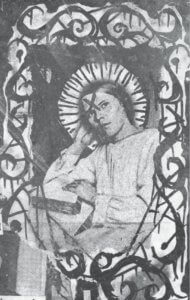 I remember learning in the 1980s when I was still young and naïve and believed the world might be full of wonder that Finland had the highest suicide rate in Europe, if not the world. This was in fact the first thing I knew about your country and it has stayed in my mind. A statistic like this might suggest that, as a population and a people, you are traditionally prone to bouts of melancholy or depression. As this general mood is evident in Förgjord’s music, is it correct to assume that it’s a trait or predisposition that you are all too familiar with yourselves, or is it something you see all around you and draw upon for inspiration?
I remember learning in the 1980s when I was still young and naïve and believed the world might be full of wonder that Finland had the highest suicide rate in Europe, if not the world. This was in fact the first thing I knew about your country and it has stayed in my mind. A statistic like this might suggest that, as a population and a people, you are traditionally prone to bouts of melancholy or depression. As this general mood is evident in Förgjord’s music, is it correct to assume that it’s a trait or predisposition that you are all too familiar with yourselves, or is it something you see all around you and draw upon for inspiration?
“We are really depressed people. Some are really depressed but almost everyone is just melancholic or too stressed from worthless things. We happen to worry too much about worthless shit and can’t get over it. Depression is like a fashion in our generation that feeds itself. In the times of our fathers, there were also depression and agony, then usually people drank themselves to death or hanged themselves if they couldn’t handle it. But they were too proud to say it to anyone. Not to their wives or even their best friends because that would have been seen as weakness and what kind of man would complain about something that ain’t real? I remember hearing a saying in my younger days: ‘don’t cry, you can’t be hurt because there ain’t any blood’. If a grown man back then would complain about anxiety and depression it would have been shameful, disgraceful! ‘What would my family think about me if say I need mental help, what kind of man would I be then?’ Well, at least the wife would have been really satisfied if she didn’t have to fear anymore when she is going to get her ass kicked again. Same with the children, maybe they wouldn’t have been so traumatised that they wouldn’t repeat those same things when they grow up. It goes from generations to generations.
“Today it’s almost the opposite. Nowadays, mental problems are talked much about in public. But it’s gone far too far. It’s like every sad thing that belongs to normal living gets diagnosed as anxiety or depression. Of course you’re sad if your close one dies or your wife leaves you, but it’s life. You just grieve for a while, handle your emotions that way and it gets better. You’ll live. But now you can go to a doctor, get diagnosed, eat some pills and numb your feelings. It’s easier that way, now you don’t have to talk to others and cry your pain and handle those emotions. Getting diagnosis for no real reason just encourages you to be depressed, it feeds itself. If you think you’re depressed, you start to act like one and soon you’re neck deep in the shit. It’s like if the doctor said you’re depressed, then it must be true then, no need to carry responsibility for yourself and your shit anymore. And when you let go of your responsibilities in life, then everything goes to shit and you’ll find out what depression is really like.
“So people are encouraged to get a depression diagnosis. A few weeks ago there was even this theme-week. Everyone cheered those who were depressed in social media like it was some kind of superpower. I get your point: you just want to show your support by letting others know that you’re ‘depressed’ too. But most of those depressed ones are just taking resources from real mental cases – those who are really depressed and are going in really deep waters. All you others who think you’re depressed, first you have to take responsibility for your lives. Swallow your pride and open up. Go to therapy or at least some groups where you can talk, instead of numbing your things deeper inside with pills. Remember that it’s you who is in charge and who has to take responsibility for your life. If you’re living in denial, no one can help you, even if they wanted to. If you have a problem, you either do something about it or get over it but please stop whining.
“Secondary, quit drinking if you’re depressed. Usual case is this depressed person who self medicates himself with drugs or alcohol just because he can’t handle his life sober. Like trying to close your eyes from the reality and hope things go away. But it just goes deeper and deeper, both depression and drug using. Others around him understand him and justify his acts just because of depression. Still only a few are brave enough to say that it’s the addiction that makes you depressed, not the other way around. Try to be sober for a couple months and check your mental health again after that. Being sober maybe isn’t the easiest way, but that’s why we have this sisu. It ain’t coincident that they go hand in hand, alcoholism and mental problems.
“Alcohol just makes problems bigger and overly dramatic. I know like ten people who have committed suicide, two of them were my close friends. First one of them was seventeen years old, a childhood friend who ran under the train. I was sixteen at that time when I heard the news. After that, people just dropped every now and then, some closer and some not so close. But take a note that not one of them was sober when they did it. Would they have been miserable without alcohol? Maybe. Would they have done it without alcohol? Certainly not. Don’t get me wrong, I respect everyone’s right to decide on their lives, especially how to end it. If you think you’re at that point where living causes just more pain and there isn’t any other way out, then it can be the right solution. I don’t encourage anyone to do it, but can respect their decision if they do. But if you do it, do it when you’re sober. If you really need to do it, then you do it with a clear mind and prove to others that this was a thoughtful act. If you can’t kill yourself while being sober, it just proves you’re not at that point yet. Many of those suicides which are done while being intoxicated would have been something those people wouldn’t have done the following morning. Things to regret while you’re in the afterlife; ending your life ex tempore.
“I know because I carry that same curse in my blood too. At some point in my life I had to start to take over my life and rethink myself, my values, my mental and physical health. Creation though destruction. There ain’t things that should be considered as self-evident. Without that knowledge, my life would be more different now or even ended years ago. With this knowledge and experience, I watch this world around me and there comes the songs I want to present to the world. These are the little things that Förgjord is made of, the darkside of Finnish culture.”
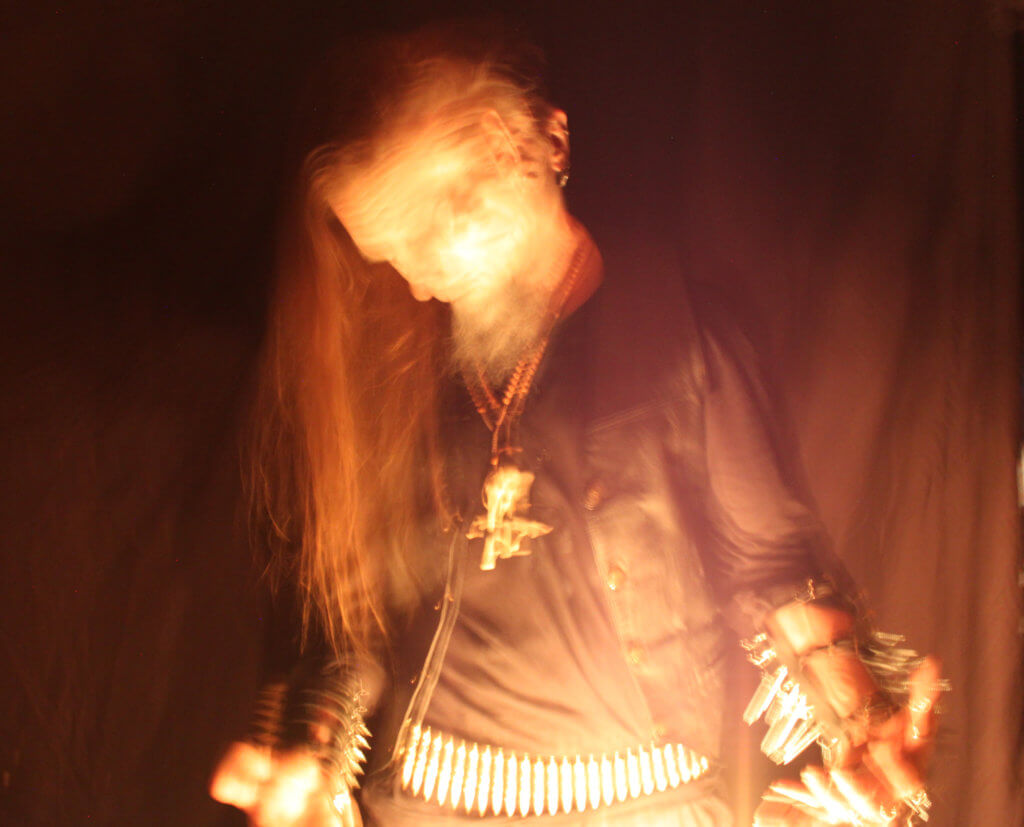
It is rather surprising and somewhat disappointing, as an outsider, to read that Finland is a predominantly Christian nation. What role do you think religion has played in adversely shaping or warping the outlook of people there and – alongside some of the factors we’ve discussed already – do you believe opposition to rampant, misguided Christianity is one of the reasons why Finland emerged as such a fervent breeding ground for Black Metal?
“Before Christianity, there lived here small tribes which didn’t even have a decent language. We know this because we found some cave paintings or pieces of pottery. We hunted, lived in sheds or pits and killed others tribe members if we met them. So not so great a culture and very little information (or more like speculations) from those day. But when Christianity came from Sweden, Finnish culture started to take shape. The first mentions of Finnish ways of living are from those Swedish books. So, even if not everyone is willing to accept it, the church and / or Christianity started to shape Finnish culture into what it has become today. But it was really interesting because all the teaching the crusades gave to us was slowly getting different shapes in Finnish minds and some of the beliefs started to mix. There was this pagan belief which hailed nature that was soon having biblical teachings. I have read some old curses that are said in the name of ‘Ristin Kiesus’ (aka Jesus Christ). You can bet that those words aren’t from the old or new testament, but more like old Laplandish beliefs that were spoken from person to person. Near my area there is this big rock that is called a ‘Church Stone’. Centuries before that it was called a ‘Stone of the Ukko’. Even if Christianity came and started to reshape our beliefs and renamed places, like that sacred place of our ancestors, people still made offerings and sacrifices on it. So when crusaders came later, they tried to remove those unorthodox beliefs.
“Of course Christianity became the most prominent belief as we got closer to our times. But because it wasn’t easy to be a Finn in a cold and cruel land, our Christianity wasn’t the easiest one either. God was fierce and his word wasn’t meant to be questioned. For example, before church dominance, just a couple of centuries ago, we had our own system of how to handle order. If someone killed someone, things could be settled for some sum of money or cattle. Or they just beat the hell out of him, but not necessary killed him. But when the church came, we started to use this Law of God. It meant that if someone did something that was against the bible, be it adultery or taking someone’s life, it had to be paid in blood to the god himself. If community didn’t kill the wrongdoer, then god would punish the whole community afterwards. So at that time, executions rose up to the sky.
“Times were different back then worldwide and things settled more and more. Still, in the 1900s, there were really obscure Christian cults that had their own puritanical way of reading the bible. There is much more real darkness and misery in those ones than any satanic cults of our time. As a matter of fact, ‘Ilmestykset’ is a concept album of one of those cult leaders; Maria Åkerblom, ‘the Sleeping Preacher’. We like to take our inspirations from those real life horrors, they just happen to be much more true and plausible than demons raping the angels or fantasy dragons flying over the mountains. And if that horror comes from Christian roots, it makes it even more twisted and perverted.
“Of course Christianity brought lots of things that ruined our beliefs, but still many of those beliefs were originally shaped from it. Nowadays, the church is weak and no one should take it as a serious opponent. For me, it’s like this retarded neighbour, maybe annoying but too easy a target to fight against. Nowadays the Finnish church is just sheep that don’t want to offend anyone, not even their opponents. It’s like Black Metal is getting what it always wanted – to beat down Christianity.”
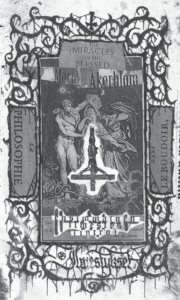 I know such polls have to be digested with a bucketful of salt, but the ludicrously-named United Nations World Happiness Report has ranked Finland as the world’s happiest nation in each of the last three years. Has there really been such a dramatic transformation there? I refuse to accept this – in my mind Finland will always be a place devoid of happiness… Seriously, though, have you witnessed a marked improvement in the general mood and mental well-being of your compatriots? It sounds like maybe the authorities have taken meaningful action to tackle a severe problem and that perhaps the lingering darkness is now more a legacy of your past than a current phenomenon? Or is it still there, simmering beneath the surface?
I know such polls have to be digested with a bucketful of salt, but the ludicrously-named United Nations World Happiness Report has ranked Finland as the world’s happiest nation in each of the last three years. Has there really been such a dramatic transformation there? I refuse to accept this – in my mind Finland will always be a place devoid of happiness… Seriously, though, have you witnessed a marked improvement in the general mood and mental well-being of your compatriots? It sounds like maybe the authorities have taken meaningful action to tackle a severe problem and that perhaps the lingering darkness is now more a legacy of your past than a current phenomenon? Or is it still there, simmering beneath the surface?
“It depends what you count. If you count people who are happy all the time, there might be one-third of them in the population. Or at least they say it behind their fake-smile. But that could also mean that two-thirds aren’t just not-so-happy but more like miserable. So I think that those polls are made-up shit to get the kind of result you want. We have such low self-esteem that we would easily lie, just so that we get some recognition from others.
“Most likely that poll tells what kind of infrastructure we have here. Kids get free lunch at school, everyone gets free healthcare, you get plenty of money even if you don’t do anything and so on. So theoretically this is a place where it’s good to be and everyone should be happy. There isn’t any real poorness here. So yeah, even if money can’t buy happiness, it’s true that if you’re poor, I mean poor-poor, it’s quite difficult to enjoy nature or the smell of freshly-ground coffee in the morning if you’re just about to die of hunger. So if some study tells us we are the happiest place, then it must be true then – just remember to eat more pills so that you’re not unhappy anymore and start living your lazy dream with social welfare. It’s working already!”
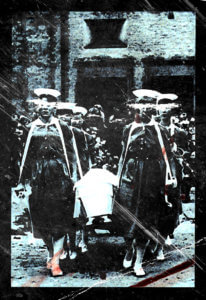 The current situation with an apparent pandemic in full swing and restrictions wreaking havoc with people’s livelihoods, personal freedoms and mental health is doing little to lighten the mood. These are grim times not just in Finland but in almost every country around the world. How have you been coping during the madness? Has it impacted much on your personal life? Or afforded you more time to be closer to nature, to look inwards and reassess things and your place in the world? Also, have you been active musically? Is there any new work on the way, either from Förgjord or Marras?
The current situation with an apparent pandemic in full swing and restrictions wreaking havoc with people’s livelihoods, personal freedoms and mental health is doing little to lighten the mood. These are grim times not just in Finland but in almost every country around the world. How have you been coping during the madness? Has it impacted much on your personal life? Or afforded you more time to be closer to nature, to look inwards and reassess things and your place in the world? Also, have you been active musically? Is there any new work on the way, either from Förgjord or Marras?
“This Covid bubble is just about to explode. It ain’t gonna kill all of us, but more like people really start to see that this shit isn’t doing nothing for us. You can get it easily, but most likely it ain’t doing nothing to you. I’m not over 80 years old, I don’t smoke my lungs out, I haven’t eaten myself right next to a heart attack and so on, so I don’t have anything to worry about. Those who should be worried, they should restrict themselves or stay at home if they are so scared. But us, the normal and healthy people are now restricted and soon forced to wear masks. So this whole hysteria has changed my life in several ways. Of course my normal routines are dramatically changed, be it at work or at the grocery store or at free time. But also I started to see myself in a different position when comparing to the world around me. And not only me, but also those sheep who are so afraid of death. Let’s wait a few months, it would be interesting so see what happens to people who are so certain of their own (and their relatives’) death, when they realise that they aren’t going to die after all. Would they be enjoying it or would be they be disappointed? Because remember what I said earlier about Finnish pride… For a traditional Finn, there isn’t any more difficult thing than to admit that he has been wrong.
“I am active always. If it’s not about doing musick, I want to run a small distribution or do small underground releases. With Marras, we are working on a new album. We will do vocals next week and then there are a few synth arrangements missing, but after that it’s done. We shall see when its ready to be released.”
It’s not just depression and melancholy that permeate Förgjord’s music, of course – there’s all manner of darkness and depravity in there, with death and violence and horror as a central, ongoing theme. The imagery and artwork you use reeks of darkness and evil, often recalling infamous deeds and crimes committed on Finnish soil. Again, you are staring into the dark heart of man?
“Inside the Finnish man lives this demon, the Perkele, who is just waiting to get out. For some, it gets energy from frustration; for others, it’s traumas and it can be triggered in seconds by affront. At that point, Perkele takes control and the Finnish man becomes a passenger. I don’t say he is innocent but please keep in mind that he just can’t help himself. It’s our curse. Main point is what man is willing to do when it’s time to pay the debt. One can do almost anything if he is willing to carry the responsibilities of his acts. For example, a typical Finnish homicide. There are three ways to handle the consequences: surrendering, killing yourself or trying to cover it. That inner demon is what fascinates me most and where I get inspiration from. There are several really interesting tragedies in our history which are still unsolved. What has driven someone to that point that he is capable of taking others’ lives, especially innocent lives? What has he been thinking afterwards when he should take responsibility for his acts, but he starts to keep things secret? And most of all, what’s it like to live a normal life after that?
“I don’t need to judge anyone; I just want to understand their motivations. What has driven man to that point where there is no turning back. Same goes for acts themselves. Even if we are talking about Black Metal aesthetics, I don’t want to glorify either the acts or the murderers.”
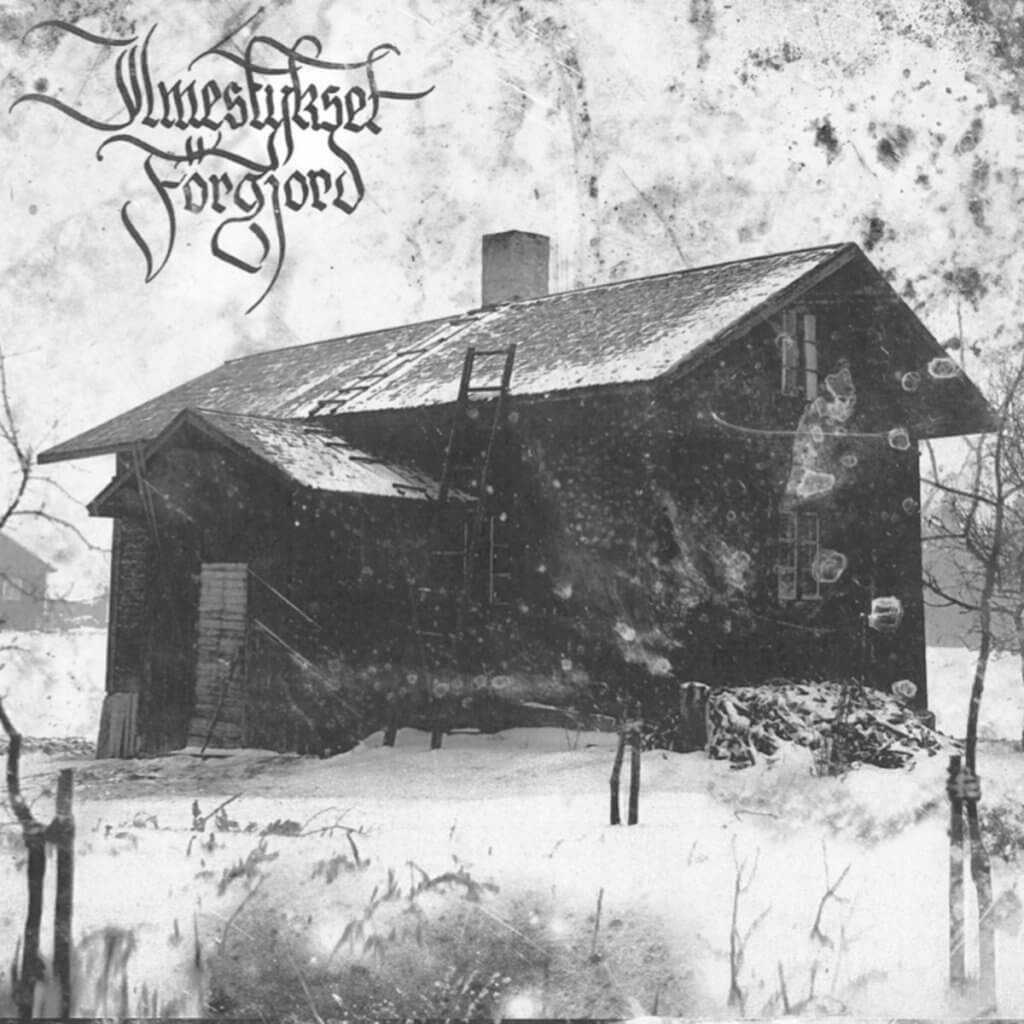 Your fifth album, ‘Ilmestykset’, from 2019, is about to be unleashed on vinyl for the first time. The old wooden home on the front cover was the scene of a heinous crime almost a century ago – what can you tell me about that incident and why did you choose to use this image on the cover of the record?
Your fifth album, ‘Ilmestykset’, from 2019, is about to be unleashed on vinyl for the first time. The old wooden home on the front cover was the scene of a heinous crime almost a century ago – what can you tell me about that incident and why did you choose to use this image on the cover of the record?
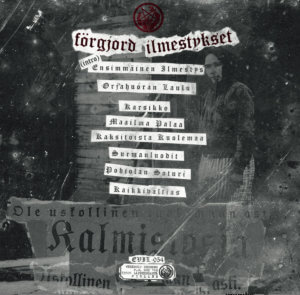 “In that house lived a normal Finnish family. On one tragic night in 1932, the father came home and killed three other family members, including his own daughter and granddaughter. The next day’s newspapers wrote how this ‘accident’ reached this family. Tells a bit about our culture, three innocent people are killed and they wrote about an accident, only because the father was so drunk that he couldn’t handle himself. That cover picture and back cover are taken the night after the homicides. That stick that is leaning next to the door is put there by the police as a ‘crime scene, do not enter’. And that woman standing next to the door is the mother of the household. She most likely doesn’t even realise what really has happened and is still in shock. As she explained that her husband must really regret this horrible accident. Still she also said that inside her heart she knew that something like this would happen.
“In that house lived a normal Finnish family. On one tragic night in 1932, the father came home and killed three other family members, including his own daughter and granddaughter. The next day’s newspapers wrote how this ‘accident’ reached this family. Tells a bit about our culture, three innocent people are killed and they wrote about an accident, only because the father was so drunk that he couldn’t handle himself. That cover picture and back cover are taken the night after the homicides. That stick that is leaning next to the door is put there by the police as a ‘crime scene, do not enter’. And that woman standing next to the door is the mother of the household. She most likely doesn’t even realise what really has happened and is still in shock. As she explained that her husband must really regret this horrible accident. Still she also said that inside her heart she knew that something like this would happen.
“When I saw the picture, I knew I had to use it. The more I looked at it, the more it fascinated me. And the more I worked with it, the more it started to shape the album itself; musically, visually and thematically. There ain’t any good or bad, only shades of grey and things look different depending from which perspective you look at them.”
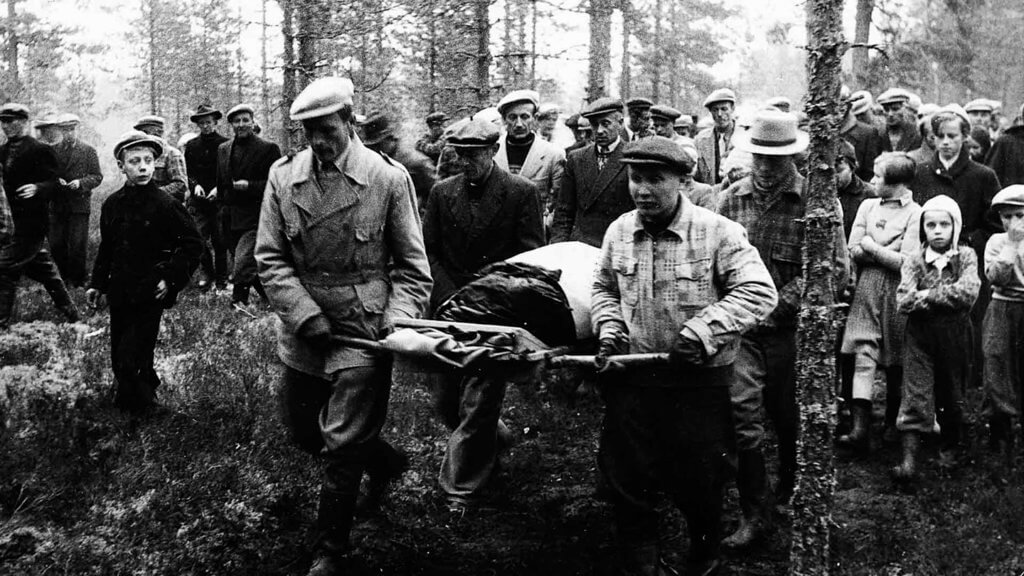
I’m really struck also by the harrowing old black-and-white image that you have posted as your cover photo on the official Förgjord Facebook page. At first I thought it was a funeral or ritual but I now realise that it’s a photo of the recovery of the remains of Kyllikki Saari, the 17-year-old girl who was murdered in Isojoki in 1953 and honoured on ‘Suohauta’ from your second full-length, ‘Ajasta Ikuisuuteen’. Why does this crime resonate so deeply with you?
“The Kyllikki Saari and Tulilahti double homicides are two of the most fascinating tragedies I know. There are so many mysterious and symbolic things in both of them. Did you know that there were talks that Kyllikki had an affair with her priest? This priest, Kauko Kanervo, of course denied that he had anything to do with Kyllikki’s death. So they never investigated him further. Still a few years later this same priest was found guilty of being in a sexual relationship with 15-year old girl. So, even if Kyllikki’s mystery is still unsolved, we know who really did it. If you look at the booklet of ‘Uhripuu’, there is a collage of Kyllikki in the last page. If you look at the booklet of ‘Ilmestykset’, there is the same kind of collage, but for Kauko Kanervo. It wasn’t planned – I noticed it just this year when comparing the booklet layouts while doing layouts for the vinyl versions. But still it isn’t coincidence, everything happens for a reason.”
Are there other stories, crimes or pieces of Finnish folklore that you have immortalised in Förgjord songs?
“Yes, there are deeper meanings. For example ‘Tulilahti 1959’ (dedicated to Tulilahti victims Eija and Riitta), ‘Syntiinlankeemus’ (dedicated to the scapegoat Runar Homström who was blamed for the Tulilahti homicides), ‘Kiviseen Syleilyyn’ (the ‘Oven homicide’ of Kokemäki), ‘Surman virta’ (the local tragedy of a man who stabbed his wife and afterwards hung himself in a boatshed), ‘Kerpeikkari’ (Finland’s first ‘serial killer’ Juhani Aataminpoika in the 1820s), ‘Surmanluodit’ (Tauno Pasanen, who shot four policeman in 1932), ‘Kaksitoista Kuolemaa’ (Toivo Koljonen killed six people, at least five of them with an axe, back in 1943) . There are others too, but these are the most obvious ones which came to my mind now.”
Compared to the more primitive ‘Henkeen Ja Vereen’ in particular, I’ve detected more diversity, variety and a twisted natural beauty in Förgjord’s more recent work. That richness not only serves as a counterpoint to the fiercer Black Metal parts but also somehow embellishes the sense of horror on display. Did you make a conscious decision to incorporate more palatable and atmospheric, folk-like passages into the music or was this something that happened subconsciously?
“You have to remember that most of those tracks are written two decades ago. Anyone can think how much they have changed and grown in that time. At that time, we had a different line-up when Prokrustes, our singer, was playing the drums. He had a really different playing style than BLK has. BLK’s first playing can be heard from the Förgjord / Nekrokrist SS split. So, if someone wants to compare did something change, here is the thin line between the new and old line-ups.
“I can’t judge my own playing style. Or maybe I can … just haven’t ever thought about it. Things just happen naturally and because we don’t have any certain style that we follow, we do what feels right at that time. I play what I feel, so songs and melodies will vary because of that. Förgjord is my way of expressing myself, so it changes depending on what’s happening in my life.
“Maybe I’ve been more angry and frustrated when I was younger and you can hear it in the ‘Henkeen Ja Vereen’ days. Still, you can listen to a song like ‘Surman Virta’ from our latest album, it’s actually a song that was originally written for the ‘Ajasta Ikuisuuteen’ album but was left out then. And in the ‘Syntiinlankeemus’ EP from 2019, there is a song, ‘Kolme Naulaa’, which is actually one of the first tracks that was done under the name Förgjord. When I listen to those releases that include old songs, I think they fit there perfectly. Bet that few would have guessed that those songs are composed like 20 years apart.”
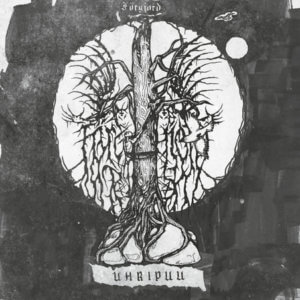 You’ve struck up a very good working relationship with Werewolf Records, who seem to be handling most – if not all – Förgjord releases these days? How did that partnership come about and how honoured are you to have your music released on this iconic label and by one of Finland’s most eminent Black Metal figures?
You’ve struck up a very good working relationship with Werewolf Records, who seem to be handling most – if not all – Förgjord releases these days? How did that partnership come about and how honoured are you to have your music released on this iconic label and by one of Finland’s most eminent Black Metal figures?
“I have known Werwolf for some time, before our debut days. Now as you mentioned, I sent him our rehearsal demo back then in hope to see if he could release it under his demo label Black Order Productions. Well, it seems our paths crossed after all. Our label supports us and doesn’t gives us any rules, so that’s all that we need. We can be our honest selves, in good and in bad. A couple of years ago I asked him what he thought about ‘Uhripuu’, which just was released. He said something like: ‘it doesn’t matter what I like about your music, all that matters is that you liked it’. And that was the main point for him signing us, we did our own thing, believing in it and we were honest to ourselves. I am in awe of Werwolf as he doesn’t try be anything he isn’t. He is just honest to himself and extremely dedicated to his works. It’s great when you know that you can count on a man’s word.”
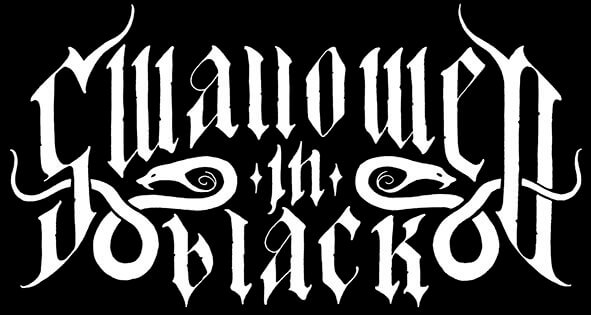
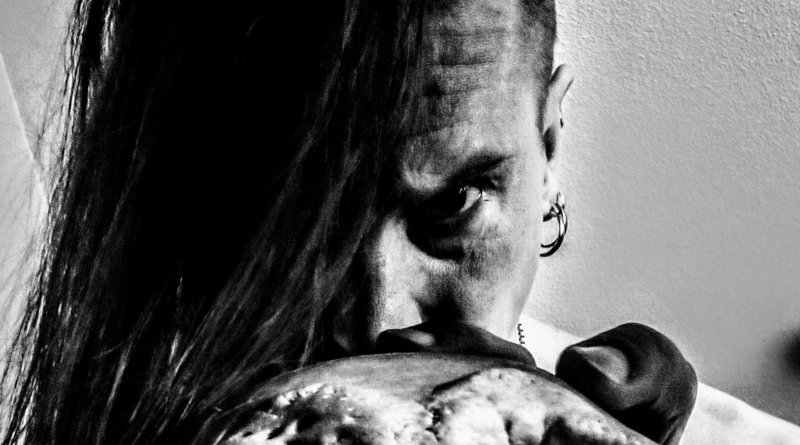
Pingback: FÖRGJORD – PERKELEEN WERI (Werewolf Records) - Swallowed In Black